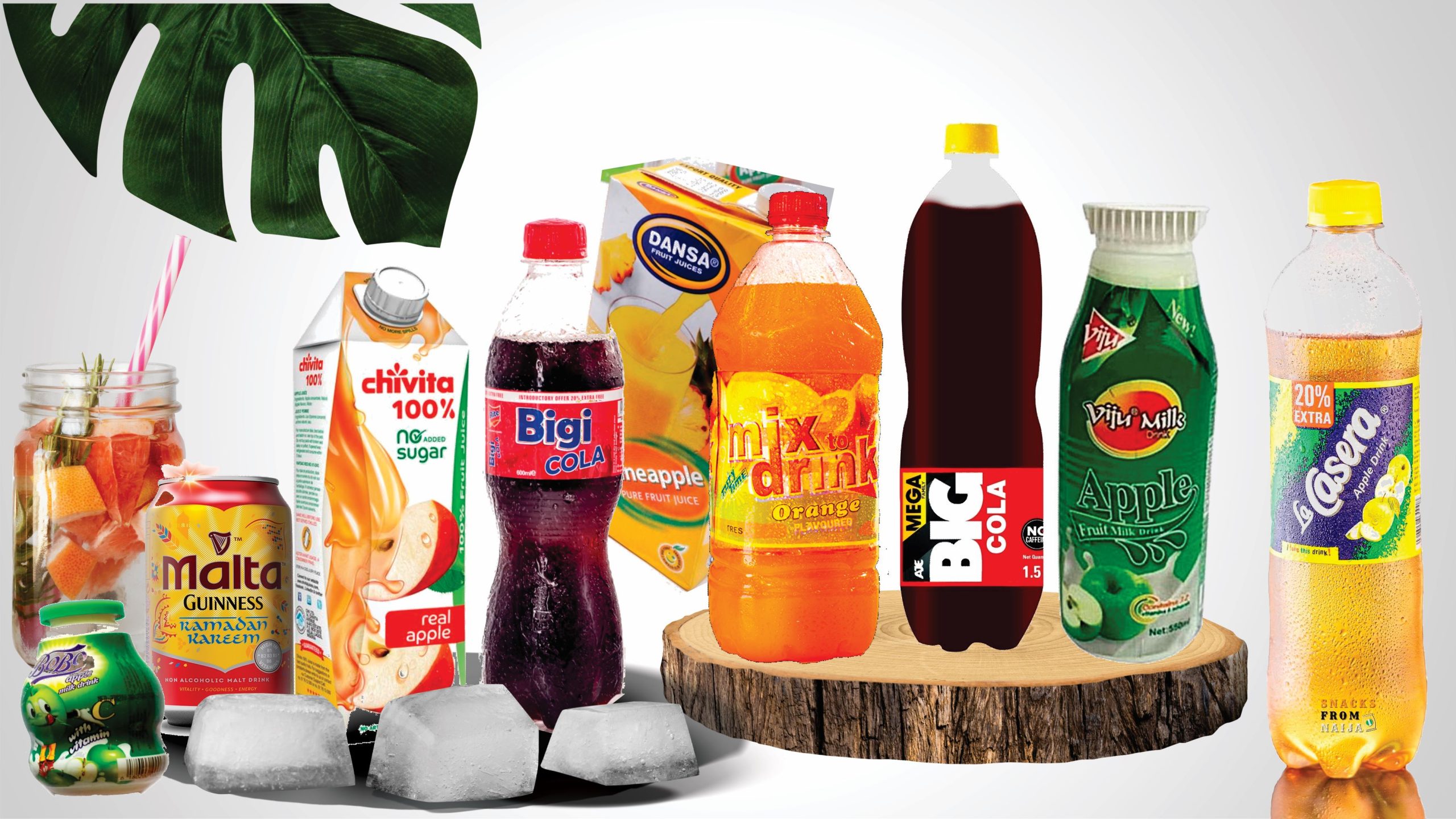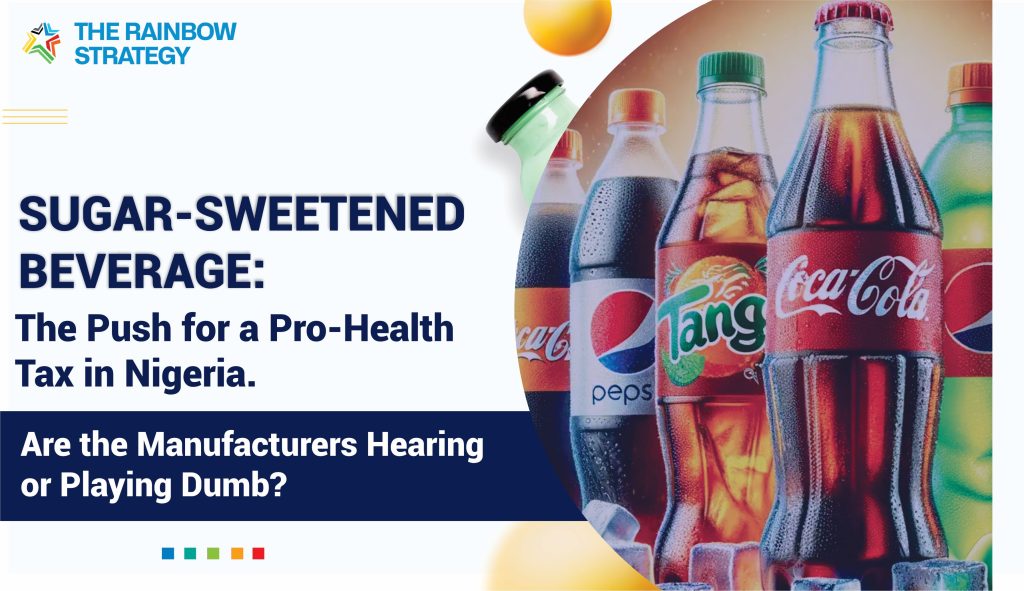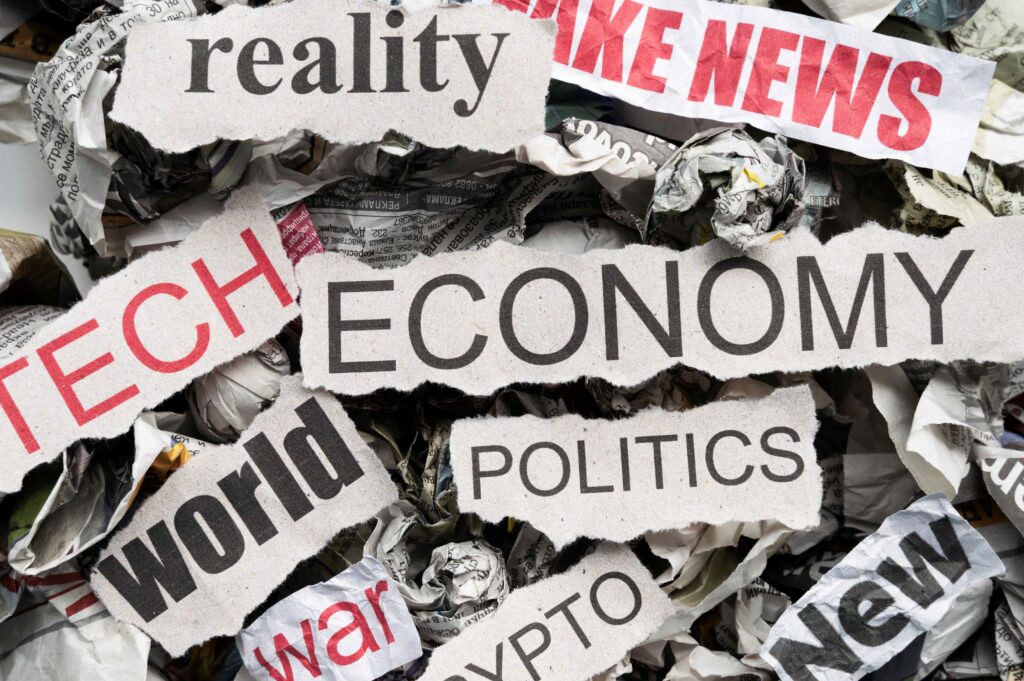Last week, I watched as an official of Corporate Accountability and Public Participation Africa (CAPPA) was strongly advocating for an increased Sugar-Sweetened Beverage Tax in Nigeria with data while responding to questions by the triumvirate Channels TV Morning Show team. The discussion appeared lop-sided until one of the ladies anchoring the programme informed the audience that the manufacturers of soft drinks in Nigeria, the industry, were also invited but for some inexplicable reason they failed to show up and present their side of story. Add this to the ongoing television campaign National Action for Sugar Reduction campaign produced by Gatefield, and the rationale for this piece will become clearer.
So right now, the push for an increased pro-health tax on sugar-sweetened beverages (SSBs) in Nigeria is gaining momentum, largely driven by health advocates, public health experts, and policymakers who are increasingly concerned about the rising rates of obesity, diabetes, and other non-communicable diseases (NCDs). However, the response from manufacturers of these beverages has been mixed, oscillating between subtle resistance, or playing deaf to the potential negative impacts these campaigns would have on their products and businesses.
Context and Justification for Increased Pro-Health Tax by Advocates
The rationale behind the advocacy for an increased tax, to 20% from the current 10%, on SSBs is straightforward: to reduce the consumption of sugar-laden drinks that contribute to various health problems. According to the advocates, Nigeria, like many other developing countries, is witnessing an alarming rise in lifestyle-related diseases. The World Health Organization (WHO) and several global health bodies advocate for the taxation of SSBs as an effective measure to curb these diseases by disincentivising excessive consumption and generating revenue that could be redirected toward public health initiatives.
The Manufacturers’ Stance: Resistance or Engagement?
- Resistance through Lobbying and Advocacy: Many of these manufacturers, especially the large multinational corporations and local beverage giants, have pushed back against the proposed tax increases. They argue that such tax increases could lead to significant job losses, negatively impact the economy, and increase the cost of living for consumers. They also try to focus on the issues of “choice” and “individual responsibility,” thereby promoting the idea that consumers should have the freedom to decide what they consume, rather than the government imposing “nanny-state” measures.
- Engagement with Public Health Narratives: Some beverage manufacturers have adopted a more conciliatory approach, engaging in dialogue with health advocates and the government. This strategy includes investing in research and development to reduce the sugar content in their products, promoting “zero sugar” and “low-calorie” alternatives, and funding initiatives to promote active lifestyles and healthy choices. However, critics argue that these efforts are often superficial, aimed more at improving corporate image than making substantial changes to their core product lines.
- Playing Dumb or Deliberate Obfuscation? Despite these visible efforts, there is a sense that some manufacturers are “playing dumb”—focusing on public relations campaigns that downplay the health risks associated with SSB consumption or shifting the conversation to other health and wellness issues. This could be seen as a strategic move to dilute the discourse around SSB taxes and prevent momentum from building in favour of such policies.
- Is It a Sustainable Strategy? How sustainable a strategy is either of the options, especially in the face of the recent onslaught by advocacy groups like CAPPA and campaigns similar to Gatefield’s?
Impact and Implications
- Health Sector Advocacy and Public Opinion: Public health advocates are pushing for a more robust policy framework to regulate the SSB sector. This includes not just taxation increases but also stricter labelling requirements, marketing restrictions (especially targeting children), and public awareness campaigns. For the advocates, it is crucial to build public support to overcome the strong resistance from well-funded beverage lobbies.
- Policy and Economic Considerations: The Nigerian government appears to be at a crossroads where it needs to balance public health concerns with economic realities. On one hand, increasing taxes could lead to a decrease in SSB consumption, reduce healthcare costs associated with treating NCDs, and raise revenue for health programs. On the other hand, it may also face backlash from the beverage industry and business community, which are significant contributors to employment and economic activity.
- Global Lessons and Local Adaptations: Countries like Mexico and the UK have implemented SSB taxes with varying degrees of success. Nigeria can learn from these examples to design a tax policy that fits its unique economic and social context, including tiered tax systems that encourage manufacturers to reduce sugar content or offer healthier alternatives.
Notable manufacturers of Sugar-Sweetened Beverages (SSBs) in Nigeria:

- Coca-Cola Nigeria
- Products: Coca-Cola, Fanta, Sprite, Schweppes, Five Alive
- Parent Company: The Coca-Cola Company
- Nigerian Bottling Company (NBC)
- Products: Bottles and distributes Coca-Cola products (Coke, Fanta, Sprite), Monster Energy Drink
- Parent Company: Coca-Cola Hellenic Bottling Company (CCHBC)
- PepsiCo Nigeria (Seven-Up Bottling Company)
- Products: Pepsi, 7Up, Mirinda, Mountain Dew, Aquafina, Lipton Ice Tea
- Parent Company: PepsiCo
- Chi Limited
- Products: Chivita Juice, Chi Exotic, Happy Hour, Capri-Sun, Hollandia Yoghurt
- Parent Company: Coca-Cola Company (owns a majority stake)
- La Casera Company
- Products: La Casera Apple, Bold Bitter Lemon, Smoov Chapman
- Bigi Drinks (Rite Foods Limited)
- Products: Bigi Cola, Bigi Orange, Bigi Tropical, Bigi Bitter Lemon
- AJEAST Nigeria Limited
- Products: Big Cola, Big Orange, Big Lemon
- Viju Industries Nigeria Limited
- Products: Viju Milk Drink, Mr. V Premium Water, Viju Flavoured Milk
- Tasty Time Nigeria Limited
- Products: Tasty Time Flavoured Drinks, Tasty Time Juice
- Bobo Food and Beverages Ltd
- Products: Bobo Milk Drink, Bobo Fruit Juice
- Guinness Nigeria (Diageo)
- Products: Malta Guinness, Guinness Malta Herbs, Orijin Zero
- Dangote Beverages
- Products: Dansa Juice (various fruit flavours), Mowa Water
These manufacturers produce a wide range of sugar-sweetened beverages, including soft drinks, fruit juices, flavoured milk, energy drinks, and other sweetened products.
Conclusion
Manufacturers of sugar-sweetened beverages in Nigeria are indeed hearing the calls for increased pro-health tax, but their responses have ranged from proactive engagement to strategic silence. Whether they continue to play dumb or genuinely commit to supporting public health goals will depend on the strength of government resolve, public pressure, and the ability of health advocates to sustain a clear and compelling narrative on the benefits of taxation and subsequent increases. Ultimately, the success of a pro-health tax will hinge on aligning the interests of all stakeholders towards a healthier Nigerian populace. Now is the time for the manufacturers of SBBs to push their strategic interests more robustly.








